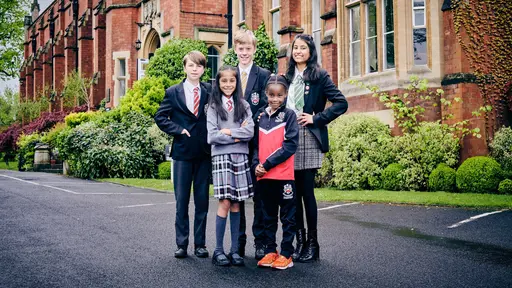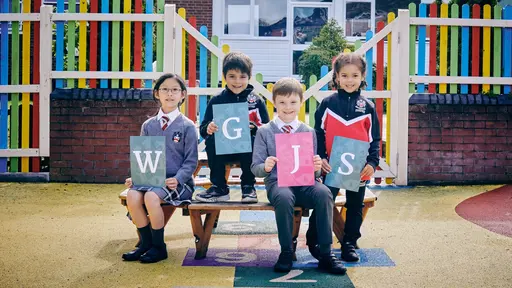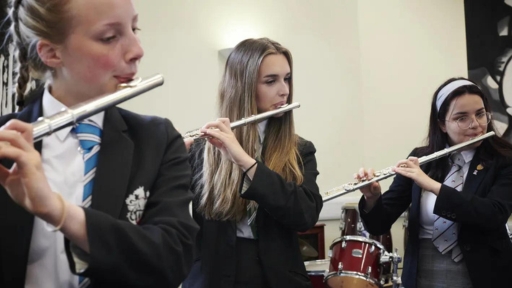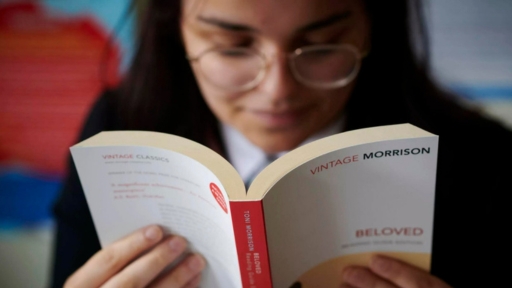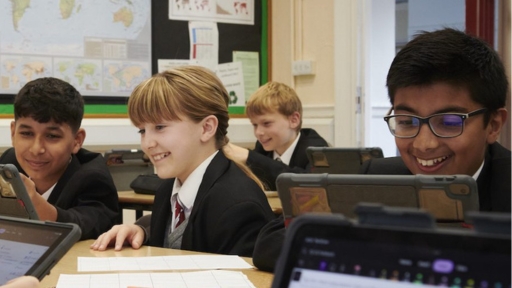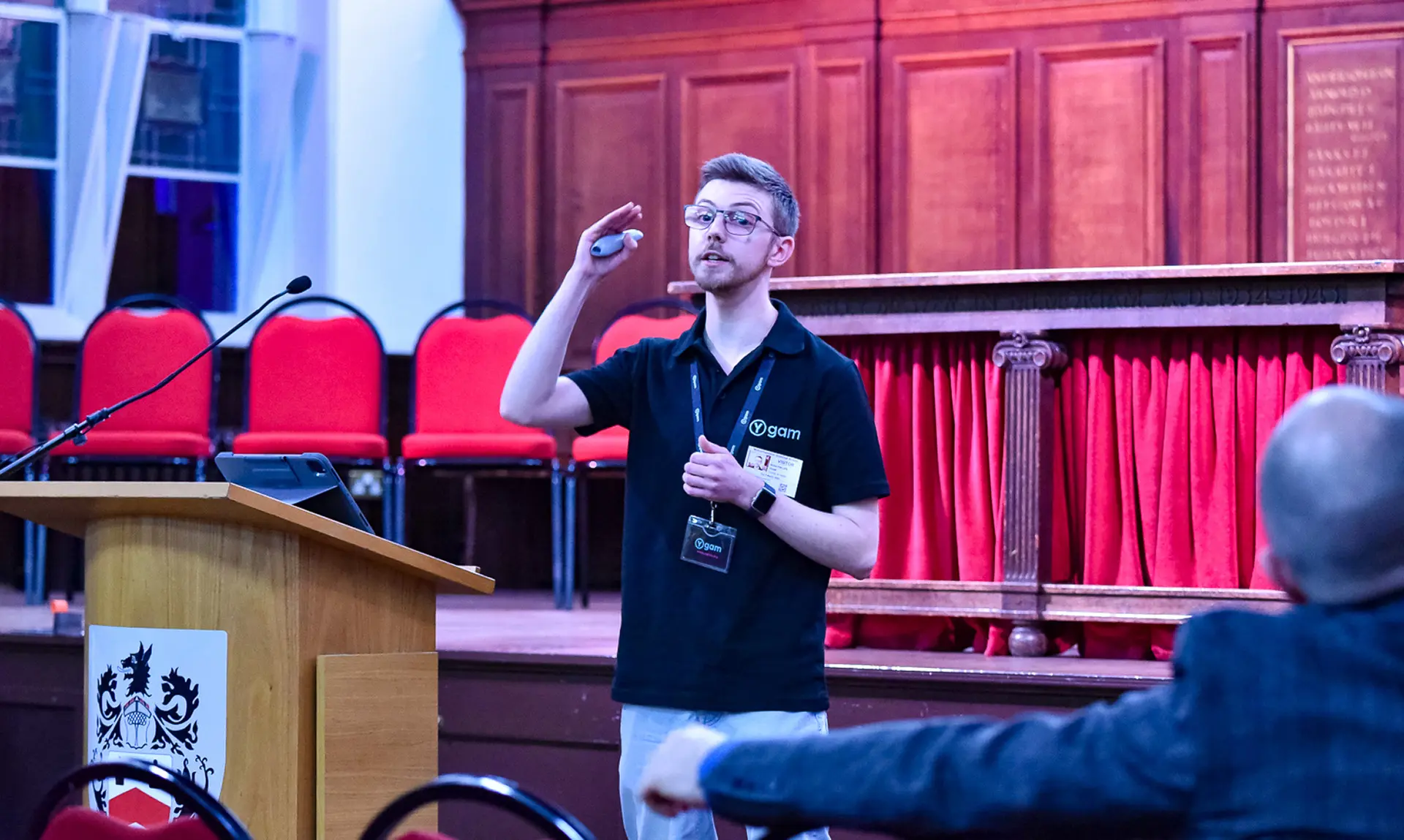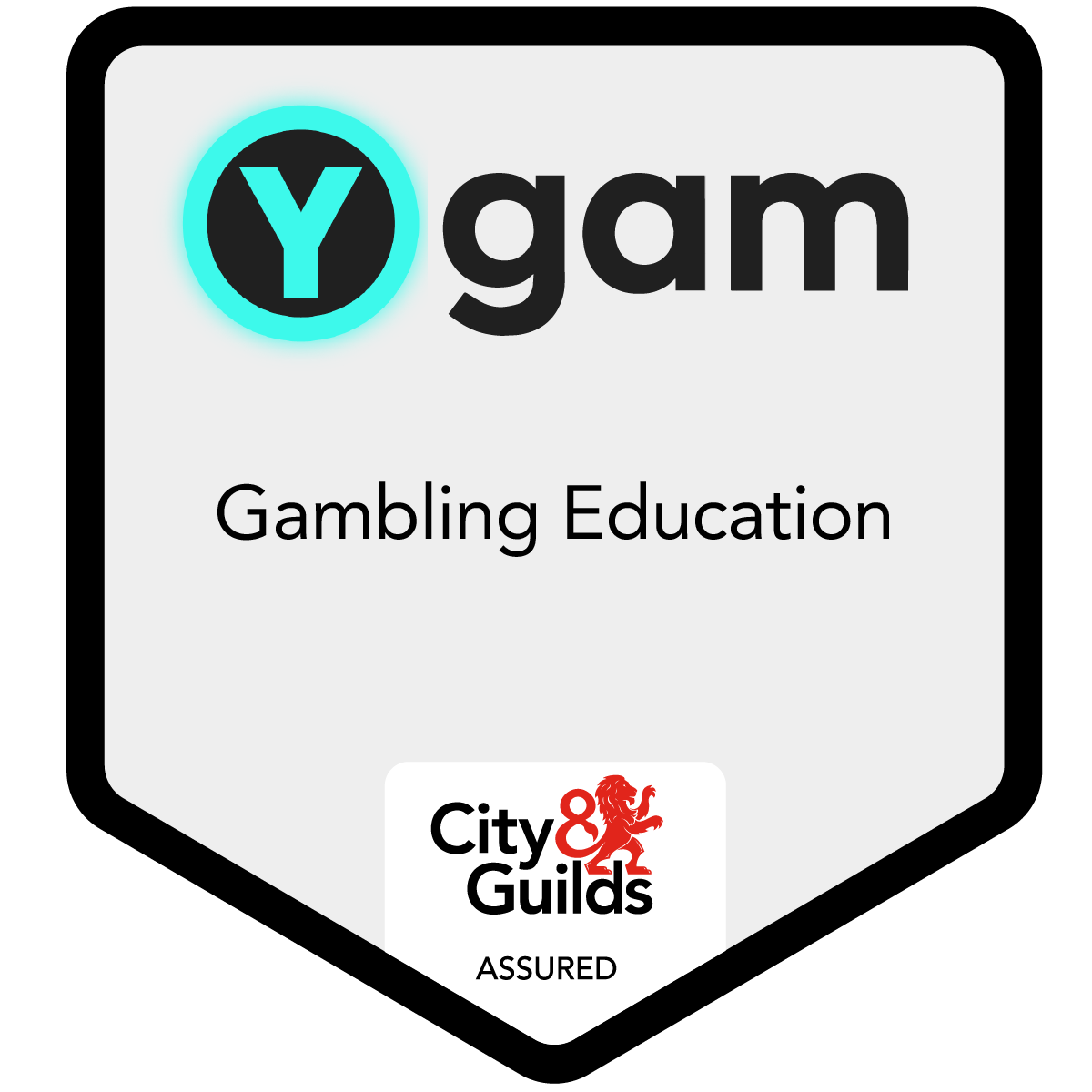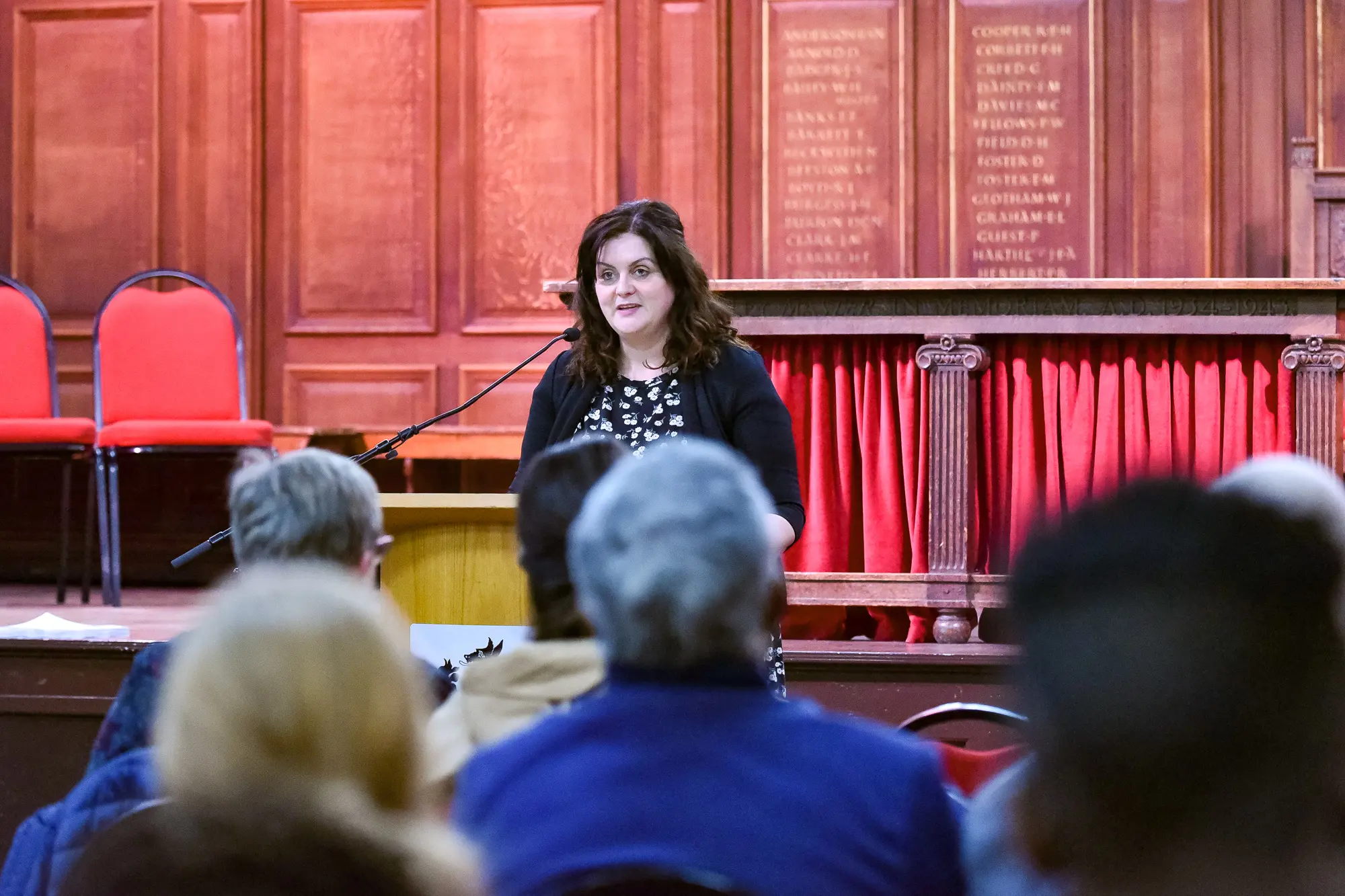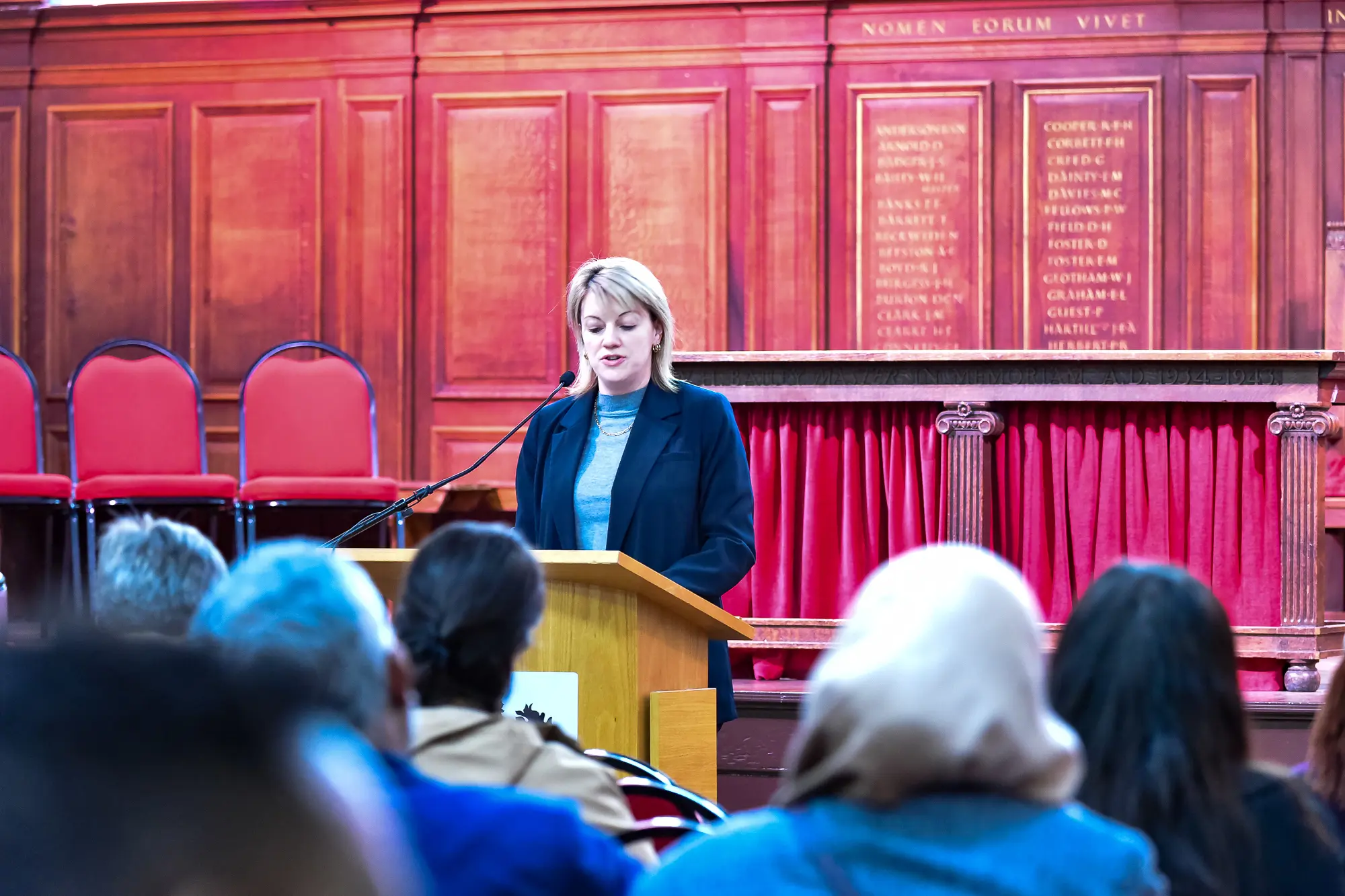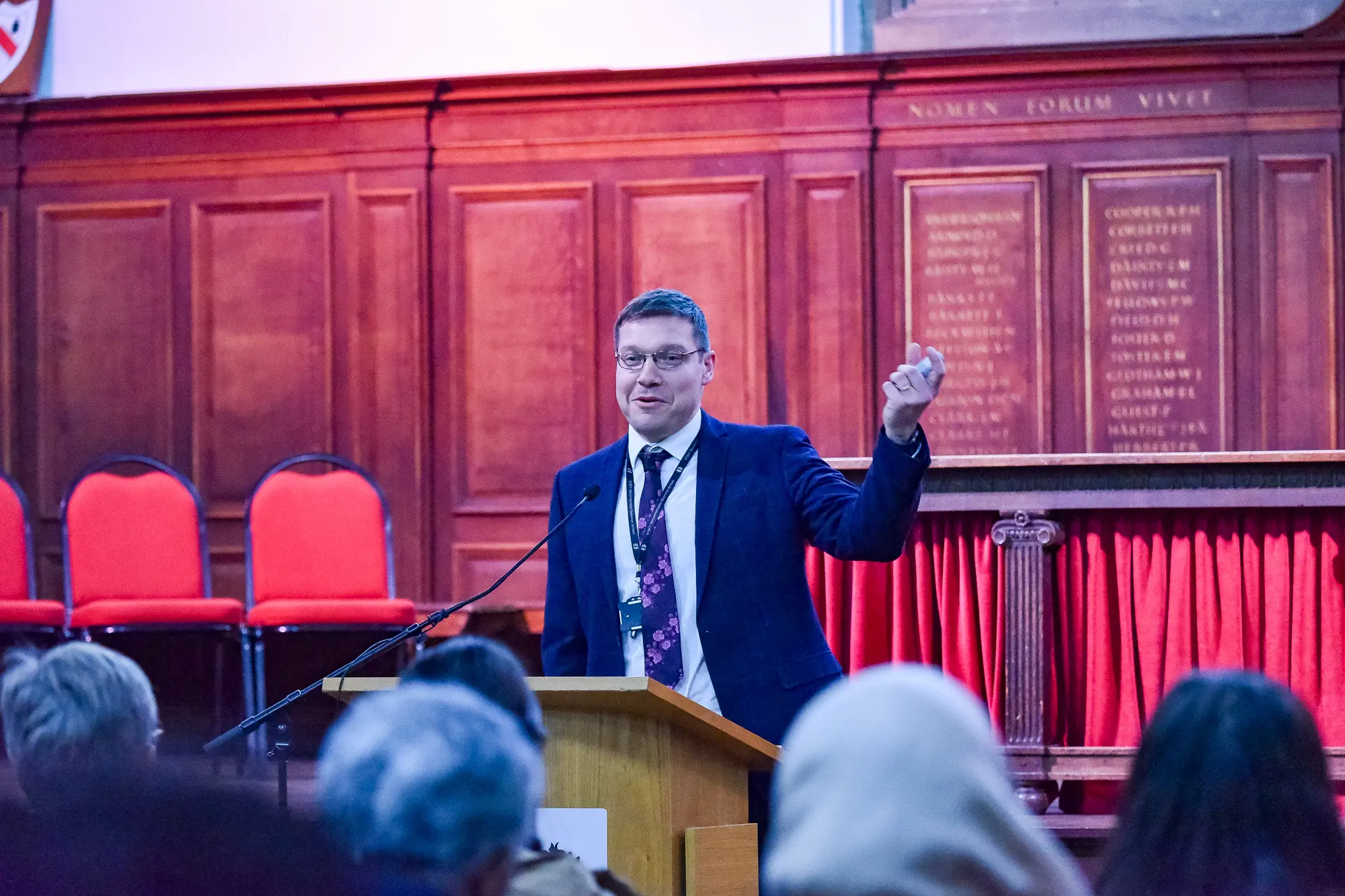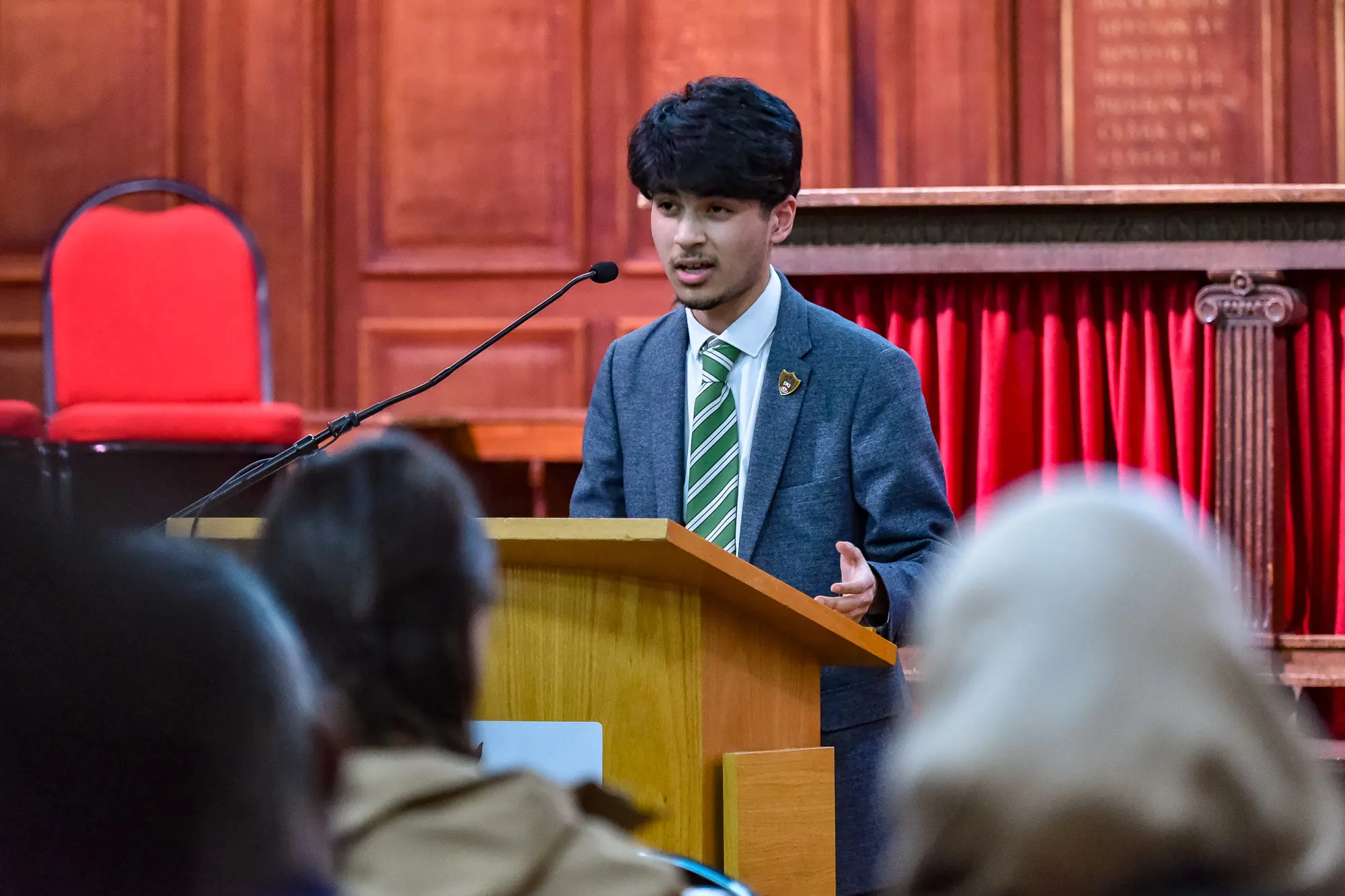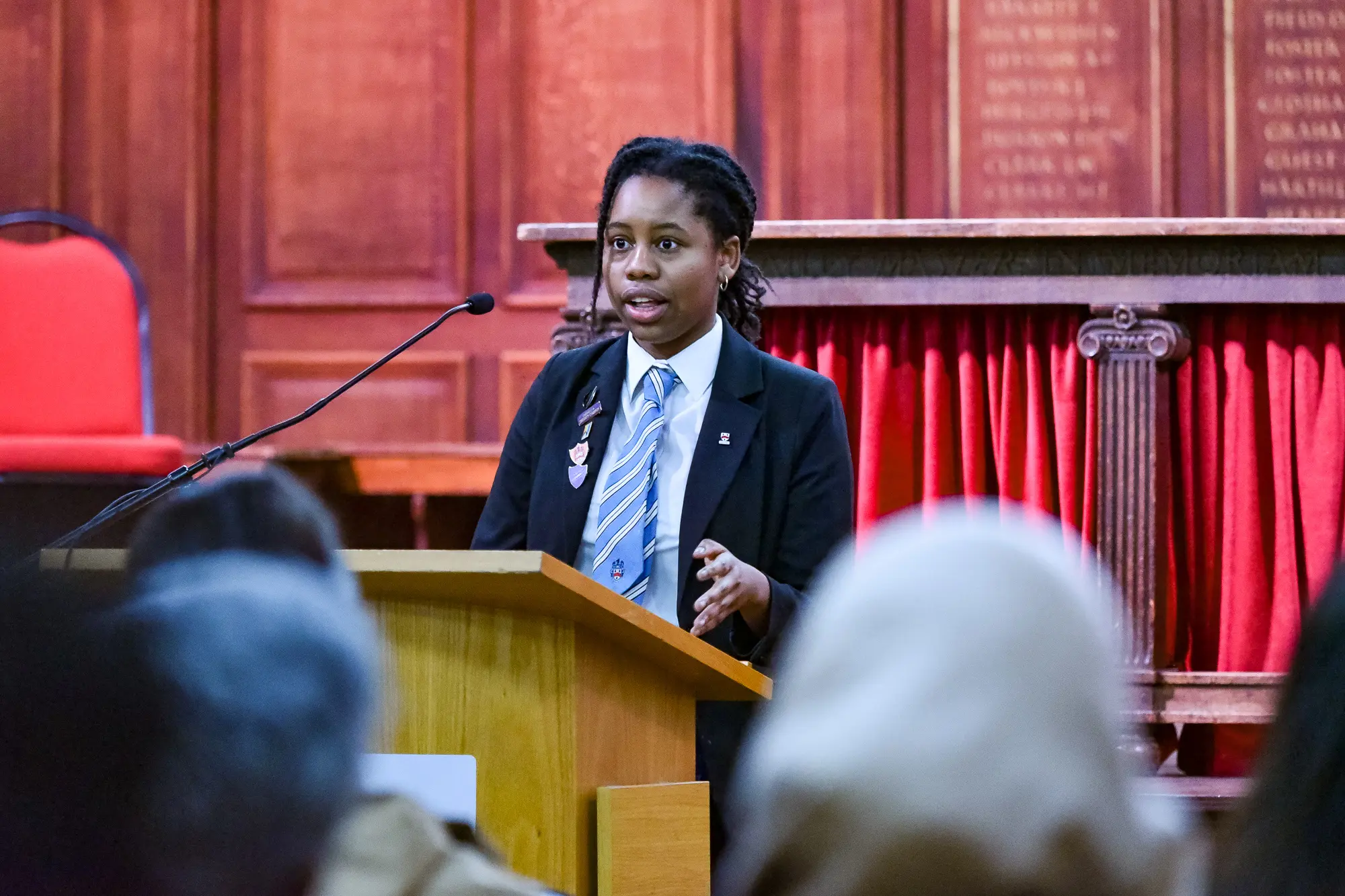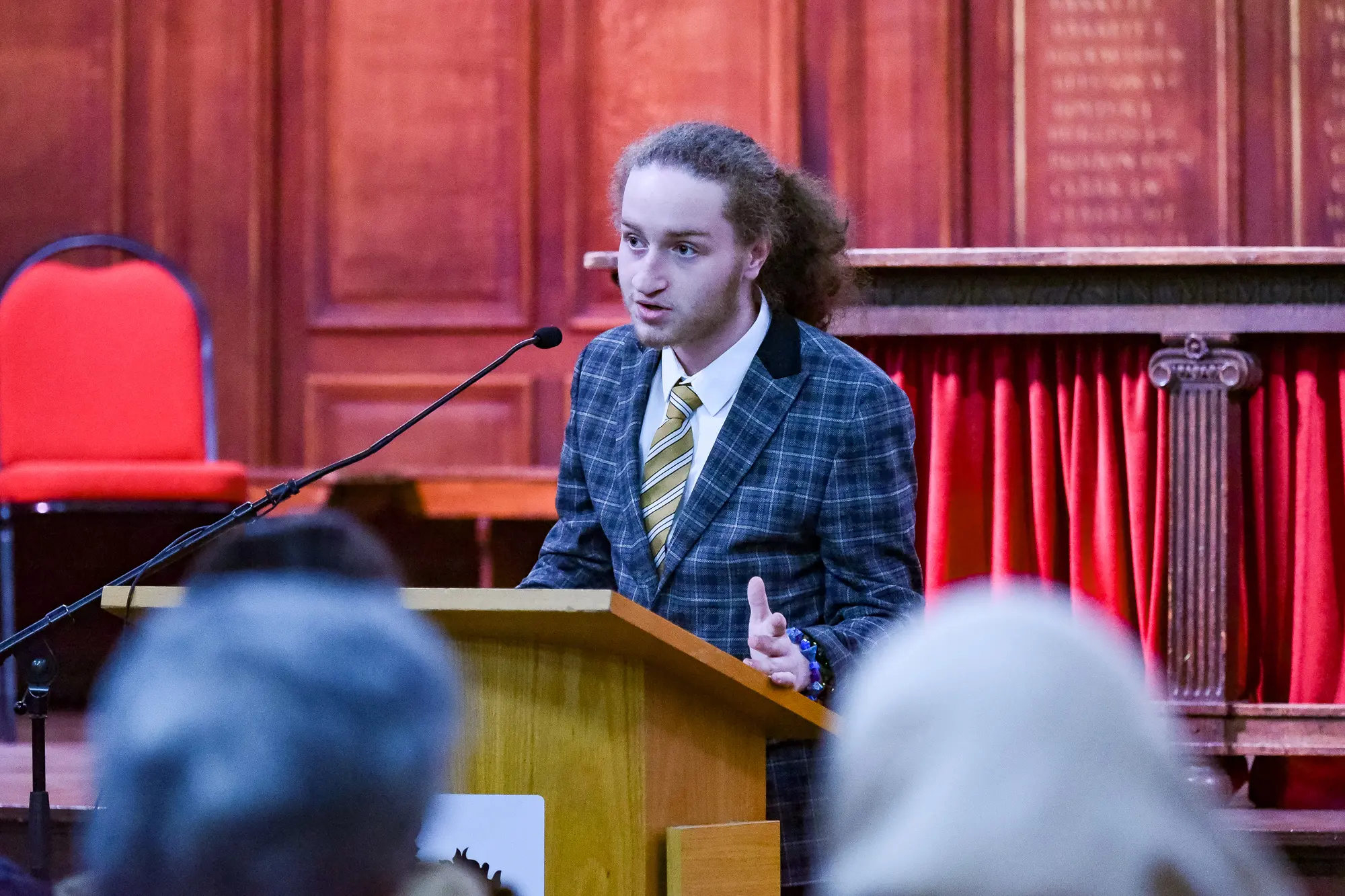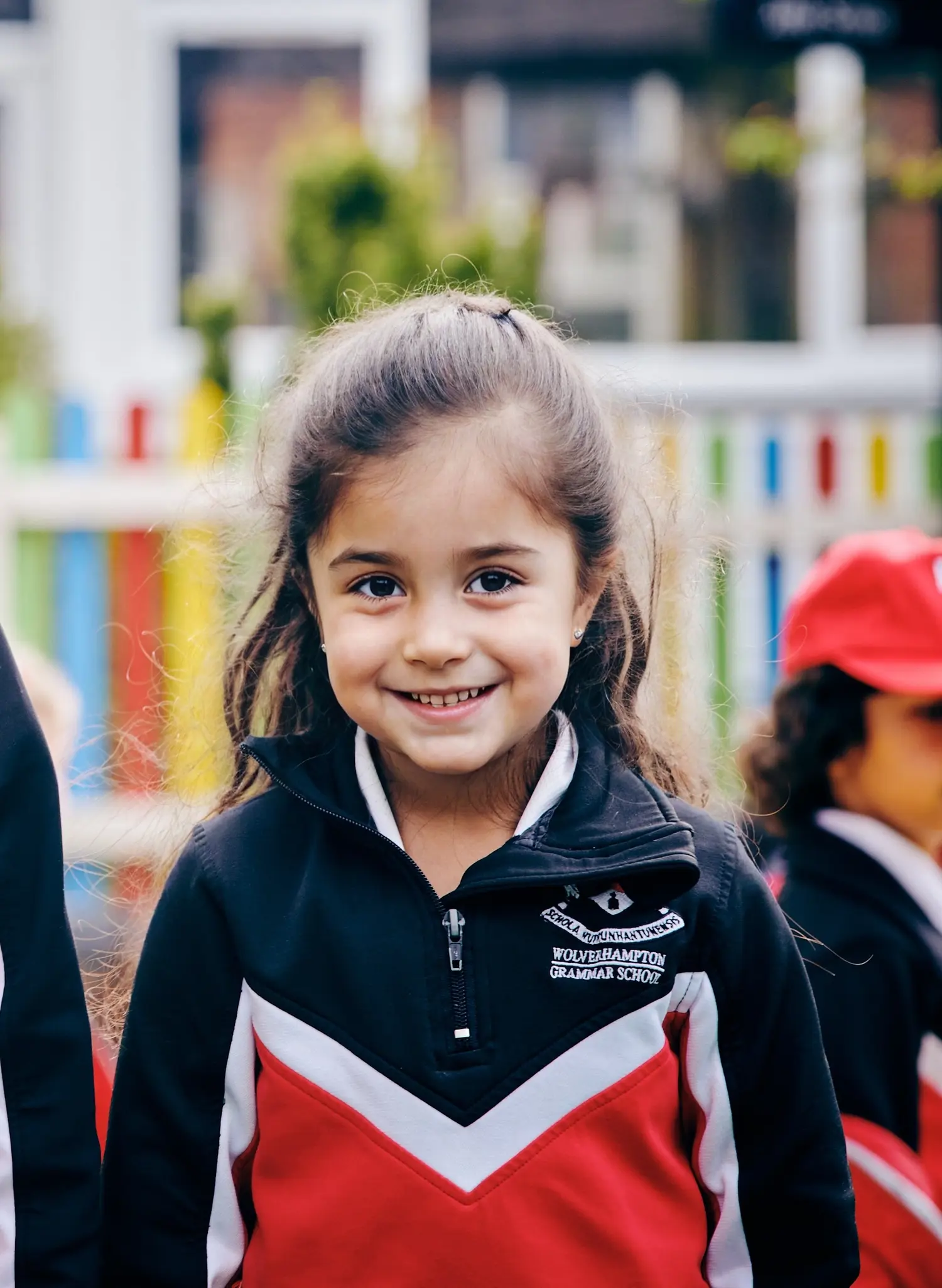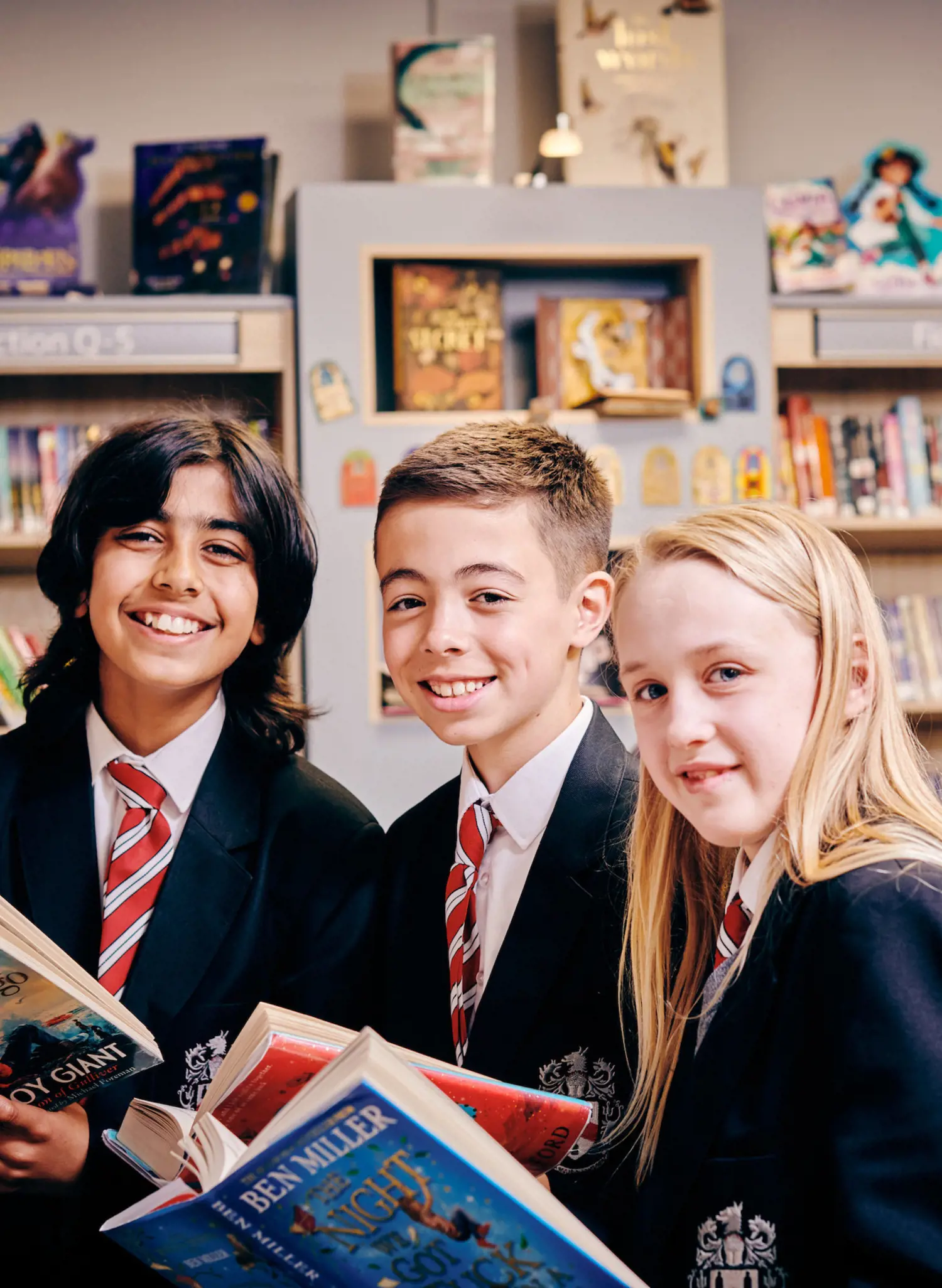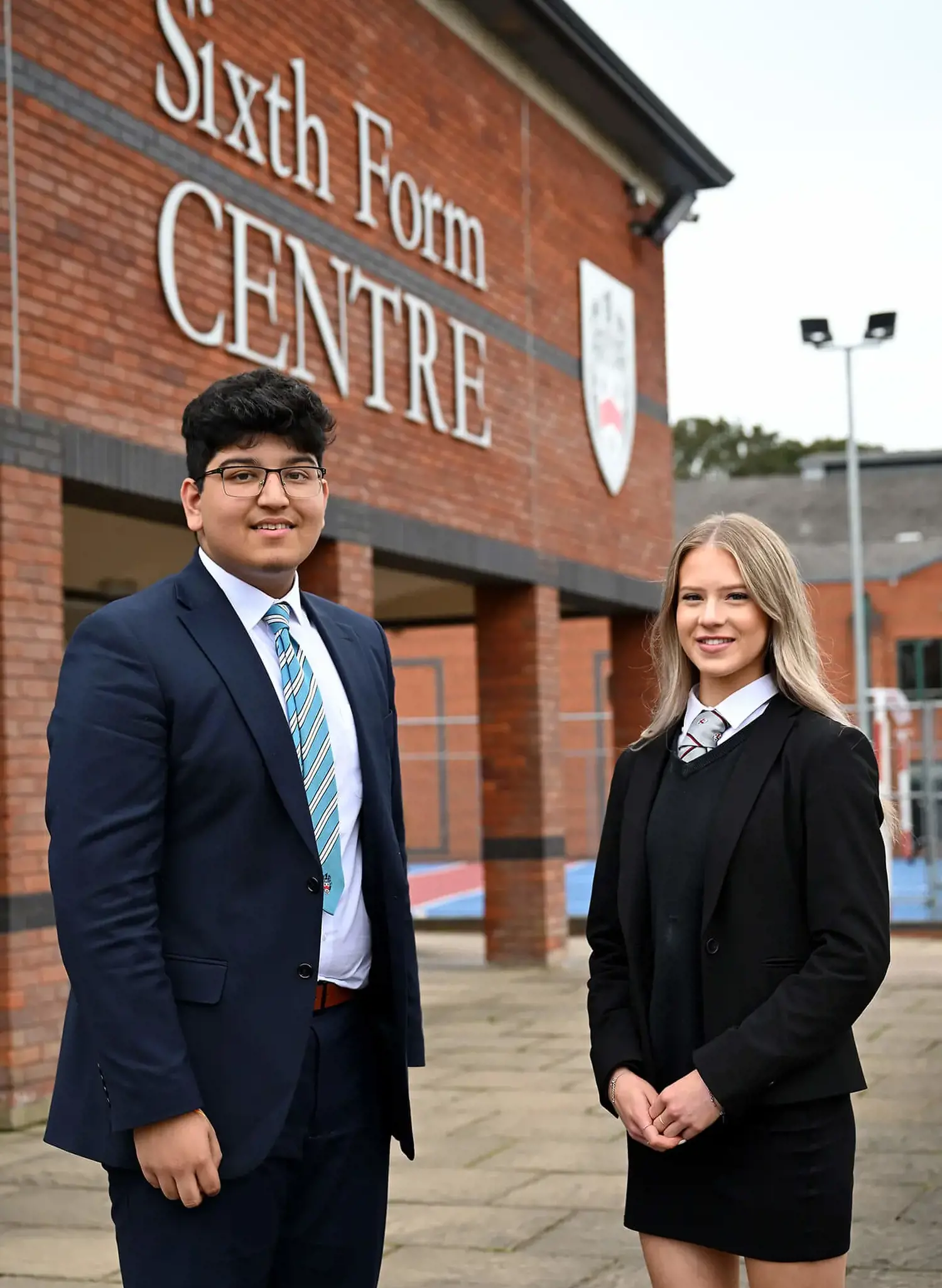"The best use of AI is having a conversation with it"
Mr Yarnley, assistant head
Safeguarding our Digital Generation
Would you pull your son or daughter off the football pitch halfway through a game and take them home? Unlikely. So then why do we as parents feel we can demand that our children immediately switch off their consoles and forfeit a game midway? The WGS Digital Wellbeing Evening organised by Head of Wellbeing, Mrs Keeley, provided a useful insight into what it feels like to be a young person in the Digital Age.
First to speak, were three of our student Digital Ambassadors: Harry, Zandile and Zaryab. It was powerful to hear from young people themselves, that making connections online through a shared interest such as a game, was perhaps easier, and less daunting, than forming a face-to-face relationship. The digital world is second nature to our young people and they have never known any different. Traditional friendships are just as likely to be formed online as they are in person; and they are not necessarily valued any differently.
Harry spoke of his experience of gaming. He highlighted how he, like many young people had been drawn into making in-game purchases by clever marketing. These microtransactions might have started innocuously but soon turned into spending real money e.g. to buy loot boxes and skins for characters, or for something as simple as buying more time to spend in a game. Harry says it was only after he totalled up the money he had spent over time that he realised he had been naïve in not recognising what was becoming an addictive behaviour.
Ryan Phillips, from the charity Ygam highlighted that parents and young people are really at the mercy of the companies producing online games. Despite carrying a recommended age-rating as young as 3 years, a game could in fact promote ‘simulated’ gambling experiences. He also spoke about the rapidly growing world of eSports. It’s not difficult to see how a young person might recognise that they are never going to make it as a professional footballer but that the possibility of representing a football club as an esportsman or woman might seem much more attainable. Something for us to keep an eye on for future generations.
On the subject of sport, “Betting is increasingly seen as a normal part of supporting your team or following a sport.” says Professor Jim Orford of Gambling UK. Whether they like it or not, alarmingly our young people are exposed to gambling brands from an early age. Research shows that gambling logos are shown as much as sixteen times a minute in premier league football games such as on pitch side hoardings, as well as on the many team kits sponsored by betting agents.
On a positive note, Assistant Head, Mr Yarnley, shared some useful examples of how technology can help students with their studies. At WGS we have already fully embedded iPad use and can see the daily benefits of this, but we are now following the rapid development of artificial intelligence and exploring how this can aide both teachers and students with their work. Mr Yarnley advocates that, “The best use of AI is having a conversation with it.” He demonstrated this by using some of the School’s AI apps currently available to senior students and illustrated how the right type of questioning (often referred to as prompt engineering) could elicit valuable educational advice: this could be generating flashcards, mind maps or quizzes to test students’ knowledge. Whilst the growth of AI may make us feel nervous, the School is pursuing it with productivity in mind. Rather than fearing computers will become a substitute for teachers and books we are helping to harness the best bits for educational purposes.
Other guest speakers included Assistant Head Student Welfare and Designated Safeguarding Lead, Miss Jones, who shared findings from the Children’s Wellbeing in A Digital World: Index Report 2024 and Head of Psychology, Mrs Worsey, who covered careers in Mental Health and Wellbeing. The interesting debates of the evening will be continued in Wellbeing lessons with our students. Our flexible curriculum allows us to revisit these topics and adapt them as technology advances and as children mature and can be exposed to further age-appropriate content. The Wellbeing team, plus a group of key staff have recently completed the City and Guilds Training about Gambling and Gaming Education. We are extremely proud of this new nationally recognised accreditation and our ongoing commitment to keeping our children safe online.
Current parents can find further information on Firefly and via the School’s membership of the National Online Safety organisation which allows parents to access advice and guidance for free. Please see below for some of the recommended links discussed at the Digital Wellbeing Evening:
Useful Links
My Family’s Digital Toolkit – specific advice and tips to support you based on answers to questions about your children’s digital habits.
Children’s Wellbeing in A Digital World: Index Report 2024
Gamcare – Gambling Harm Support
Ygam – Evidence-led education to help prevent gaming and gambling harms
For Current Parents:
Digital Wellbeing Evening 2024 Presentations and AI app information
Online Safety Firefly pages including National Online Safety sign-up link, a multi-award winning online safety training and resources platform
Wellbeing Firefly pages – Wellbeing curriculum and other useful resources
For further information about the Wellbeing Curriculum please contact Maggie Keeley: mxk@wgs-sch.net


